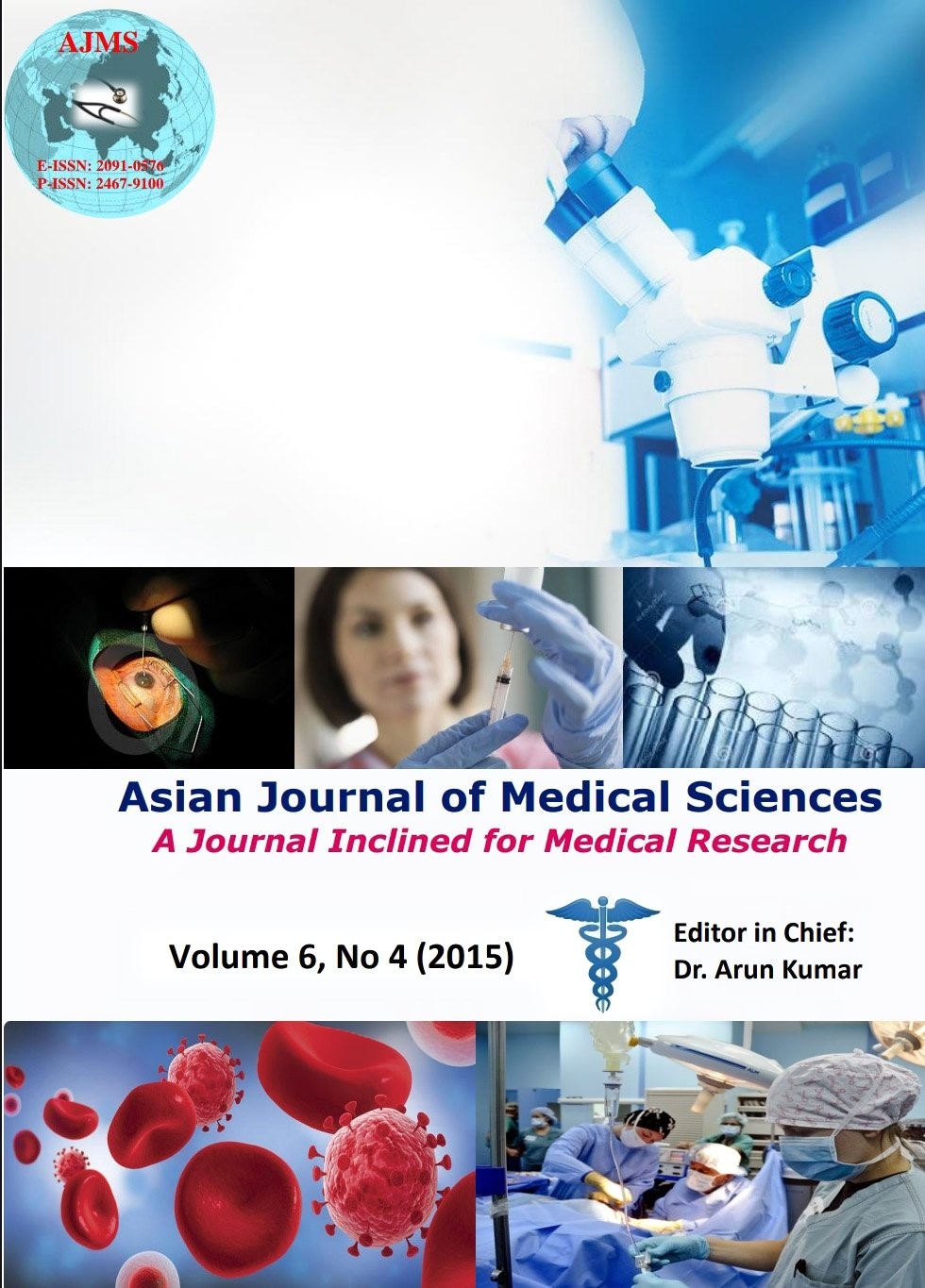24 Hours Urinary Hydroxyproline - A Noninvasive, Cost-Effective and Early Biochemical Marker Which May be Used to Screen the Osteoporotic Lesion in Postmenopausal Women
Keywords:
Postmenopausal women, Urinary hydroxyproline, Biochemical bone markersAbstract
Introduction: Osteoporosis results due increased rate of bone turnover. It has multifactorial etiology and most common in women after menopause.
Objective: The current study was aimed to assess the rate of bone turnover towards detection of osteoporotic changes by measuring 24 hours urinary hydroxyproline which is an early as well as non- invasive biochemical bone marker.
Methods: Urinary hydroxyproline was measured in 40 postmenopausal women and compared with similar number of premenopausal women as controls.
Results: 24 hours urinary hydroxyproline levels were significantly higher (p<0.001) in postmenopausal women than premenopausal groups. This indicates a higher rate of bone turnover suggesting osteoporotic changes. 24 hour urinary hydroxyproline is also positively correlated (r= 0.934) with age.
Conclusion: The present study suggests that measurement of 24 hours urinary hydroxyproline which is a cost-effective and non- invasive technique, may be used for screening and early detection of osteoporotic changes in women of postmenopausal age group.
DOI: http://dx.doi.org/10.3126/ajms.v6i4.11853
Asian Journal of Medical Sciences Vol.6(4) 2015 21-24
Downloads
Downloads
Published
How to Cite
Issue
Section
License
Authors who publish with this journal agree to the following terms:
- The journal holds copyright and publishes the work under a Creative Commons CC-BY-NC license that permits use, distribution and reprduction in any medium, provided the original work is properly cited and is not used for commercial purposes. The journal should be recognised as the original publisher of this work.
- Authors are able to enter into separate, additional contractual arrangements for the non-exclusive distribution of the journal's published version of the work (e.g., post it to an institutional repository or publish it in a book), with an acknowledgement of its initial publication in this journal.
- Authors are permitted and encouraged to post their work online (e.g., in institutional repositories or on their website) prior to and during the submission process, as it can lead to productive exchanges, as well as earlier and greater citation of published work (See The Effect of Open Access).




